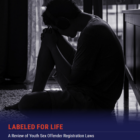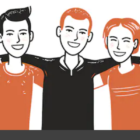
Opinion: Bring Back Black Girls Before They’re Herded Into Foster Care, Justice System
|
The #SayHerName movement that was launched in 2014 by the African American Policy Forum and the Center for Intersectionality and Social Policy Studies has gained immense momentum amid a number of nationally recognized murders of Black women at the hands of police. A goal of the campaign is to bring to light the oft overlooked stories of Black women and girls who have needlessly and unjustifiably perished in their encounters with law enforcement.
#SayHerName is an important, overdue and necessary movement. It is a vigil for Black women and girls who have fatal interactions with the legal system and is crucial to honoring those lost and to educating society on the all too common, yet underacknowledged, realities of being a Black female in America. While we recognize the importance of #SayHerName, we want to shed light on a population of Black girls who are entangled in America’s custodial systems and seemingly missing in plain sight. These girls are placed under the control of institutions that were avowedly designed to protect and/or rehabilitate young people but that often do just the opposite and, in turn, create a new population of victims.
These systems have the capacity to inflict irreparable physical and psychological harm, which in some instances has led to the untimely deaths of Black girls.







